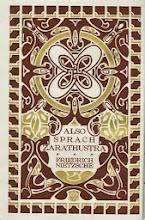Tillich on the Prophet's Agape vs the Philosopher's Eros
‘It was the experience of those modern skeptics who hide themselves under many masks from intolerance in periods of dogmatism. It cannot be otherwise, for the first step of the creative philosopher is radical doubt. He questions not only the traditions and symbols of the community to which he belongs, but also what is called the ‘natural world view,’ the common-sense presuppositions of ‘everybody.’ He who seriously asks the question: ‘Why is there something, why not nothing?’ has experienced the shock of nonbeing and has in thought transcended everything given in nature and mankind. He has dissolved (usually without intending to do so) the ties with any community of belief.’ – p49
Biblical religion demands and gives that kind of love which the New Testament calls agape. Philosophy, from Plato on, praises the Eros which carriers the soul; in its search for ultimate reality. If agape and Eros exclude each other, the case for a synthesis between biblical religion and ontology is hopeless. Agape seeks that which is concrete, individual, unique, here and now. Agape seeks the person, the other one who cannot be exchanged for anything or anyone else…He must be accepted in spite of the universals which try to prevent his acceptance such as moral judgments based on general norms, or social differences justifying indifference or hostility, or psychological characteristics inhibiting a full community with him. Agape accepts the concrete in spite of the power of the universal which tries to swallow the concrete. Eros – a word which is not used by biblical religion – intuits the universals, the eternal essences (ideas), of which the concrete is only a weak imitation. Eros drives beyond the individual thins and person. It uses the concrete as a starting point. But the it transcends it and dissolves it into the universal. The fulfillment of Eros is the mystical union with the one, in which all concreteness has disappeared. Ontological passion has the character of Eros. The affirmation of the other one in his concreteness is agape.’ – p50-51
.


<< Home